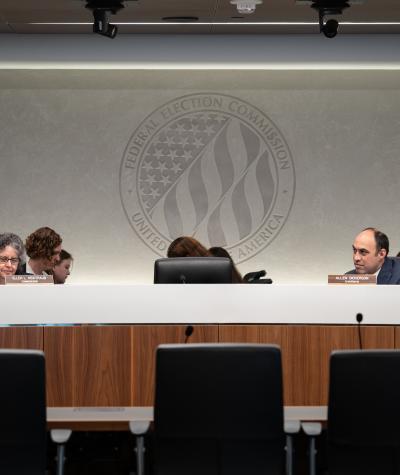It’s no secret that leadership PACs have long been a source of abuse in our campaign finance system. These committees were first permitted more than forty years ago to enable federal officeholders and candidates to raise money to support congressional colleagues and gain support for their efforts to secure leadership roles. But in recent years, leadership PACs have often been used as slush funds, to pay for all kinds of personal expenses that have little to no official or electoral purpose.
Campaign Legal Center (CLC) has co-authored multiple reports documenting the hundreds of thousands of leadership PAC dollars that elected officials have spent on personal indulgences, including, e.g., golf retreats, country club memberships, trips to Disneyland, Broadway tickets, concerts, sporting events, and luxury hotel stays.
Furthermore, between 2013 and 2018, contributions to other candidates and committees — i.e., the original intended purpose behind leadership PACs — actually comprised a minority (45%) of leadership PAC spending.
It’s commonsense that government officials shouldn’t be allowed to use political contributions to buy Disney World tickets. Yet federal regulators at the agency responsible for enforcing the laws that govern the U.S. campaign finance system have allowed this type of abuse to flourish.
The Federal Election Commission (FEC) has long failed to apply the laws prohibiting the “personal use” of campaign funds to leadership PACs, effectively permitting officials to use these committees for wildly inappropriate expenses.
For years, this failure to regulate was the product of agency gridlock, with the FEC’s six Commissioners deadlocking (usually voting 3-3) on the issue of whether the personal use rules apply to leadership PACs. The FEC’s latest step in the wrong direction goes even further and highlights the need for legislative intervention.
Last week, in an enforcement matter against former Rep. Lou Barletta over his leadership PAC spending, a majority of FEC Commissioners affirmatively declared by a 4-2 vote that the personal use rules do not apply to leadership PACs. This new, dangerous development — the first such Commission decision in response to an enforcement complaint — is now Commission precedent that purports to categorically bless even the most blatant personal spending of political contributions.
The FEC has now made it abundantly clear that it will not regulate personal use of leadership PAC funds. Congress should step in and clarify the law.
The Federal Election Campaign Act (FECA) already prohibits any person from using “[a] contribution accepted by a candidate,” or a donation to support the “activities of [an] individual as a holder of federal office,” for “personal use,” i.e. a reason unrelated to elections or officeholder duties.
Because a leadership PAC is, by definition, established by a candidate or officeholder, every contribution to a leadership PAC is “accepted by a candidate” and thus is already statutorily covered by the personal use prohibition. But because certain FEC Commissioners have insisted on applying the personal use prohibition only to money contributed to a candidate’s authorized campaign, Congress should amend the law to explicitly apply the prohibition to leadership PACs.
The ideal legislative solution would be for Congress to extend the personal use prohibition to all political committees, including PACs. In fact, the FEC has for many years asked Congress to do exactly this in its annual legislative recommendations; even while disagreeing about what money the law covers, Commissioners have agreed that the law needs to be strengthened.
Several past bills, such as the Political Accountability and Transparency Act and Leadership PAC Limitation Act, have advanced this type of solution. Although these bills did not gain traction in previous sessions, members of the current Congress should reintroduce them or similar legislation this session and push for passage.
When candidates and lawmakers misuse their supporters’ donations to pay their personal bills, trust and confidence in government suffers. By prohibiting the personal use of campaign funds, campaign finance laws strive to protect the accountability that is essential to the integrity of our political system. But true accountability isn’t possible if candidates and officeholders are able to use an alternative vehicle like a leadership PAC to spend contributors’ money on their personal expenses.
With the FEC formally abdicating its regulatory responsibility, Congress must act swiftly to stop leadership PAC abuse and remedy the rampant corruption that has gone unchecked for far too long.

